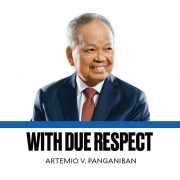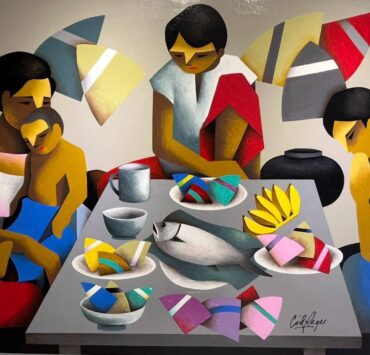Lawfare

The late scholar Benito Legarda Jr. once told me the question of collaboration during World War II had long been settled by the time President Roxas issued an amnesty to high- and middle-level officials accused of cooperating with the Japanese. That’s because the people themselves solved it by exterminating those they viewed as particularly notorious in their local communities, in the brief period of lawlessness between the retreat of the Japanese and the restoration of authority by the Americans. Those who were amnestied still sought, in many cases, absolution through election, starting with Jose P. Laurel who tried to be (unsuccessfully) elected to the presidency (though he did achieve political vindication by being elected to the Senate).
In a similar manner, it could be argued the flight of the Marcoses in 1986 avoided civil war and their turning into political martyrs had they been subjected to a trial (we studiously forget and thus ignore, that their return was not a case of Filipino laxness but rather, a human rights condition set by the Swiss government, on the principle that they should be allowed to face their accusers in court). Still, the Marcoses themselves and many of their principal lieutenants sought absolution through election.
If a show trial wouldn’t have convinced anyone it was more than victor’s justice, what would have accomplished more would have been depriving them of the material rewards of power. But this avenue was permanently closed off very early on: arguably the battle for public opinion was lost, the moment an attaché case of documents was stolen in New York City. Steve Salonga later recalled it was Pedro Yap’s briefcase that was stolen, and no original documents were lost; but thereafter the whole effort lost the appearance of invincible competence. When the present Chief Justice theorized that the future of continuing cases would hinge on a very simple premise—justice delayed is justice denied (for the defendants)—one could further argue the battle for public opinion has been conclusively lost (or won).
Another fork in the road was in 2001, when, having been ousted, Joseph Ejercito Estrada found himself under arrest and, briefly, the capital was convulsed by an urban insurrection which was a reminder of what could have happened—except probably much more ferociously—in 1986. The question of culpability was settled outside the courts: some who’d supported Estrada, ended up permanently politically disgraced; others, including the Estradas themselves, sought and achieved political absolution through the polls.
President Gloria Macapagal Arroyo in the end followed the example of President Manuel Roxas (and to a lesser extent, President Fidel Ramos, with his amnesty for military rebels) when she pardoned former president Estrada. But the damage had been done: the Church and civil society never recovered after egging her on to throw the book at Estrada, only to cower, powerless and frightened, when the urban insurrection of 2001 resulted in the military rescuing the situation (and her government). At the time I’d written and continue to believe, that she’d been forced to ignore a basic principle of our politics: never kick a man when he is down; when someone falls from power, the fall and thus, loss of influence and authority, is widely accepted as punishment enough. To go further is to embark on the road of vendetta, which can span generations.
The waters were muddied by Arroyo and her successor as both represented what had long been attempted but only finally achieved by the two: regime restoration, sparked, not least, by the manner in which both families had been vilified by their successors. If restoration for them was acceptable, how could it be denied for anyone else, particularly since all had been, at one point or another, tarred with the same rhetorical brushes? Whether for survival or out of spite—and more importantly, for a public that refused to see any difference—the pursuit of legal reprisals only served to reduce any deeper political, legal, or moral justifications for the cases to the superficial level of a vendetta.
One thing that the old system of presidents running for reelection had going for it was they often lost, and conclusively proved they were done. It spared the country their continued interference in politics.


















